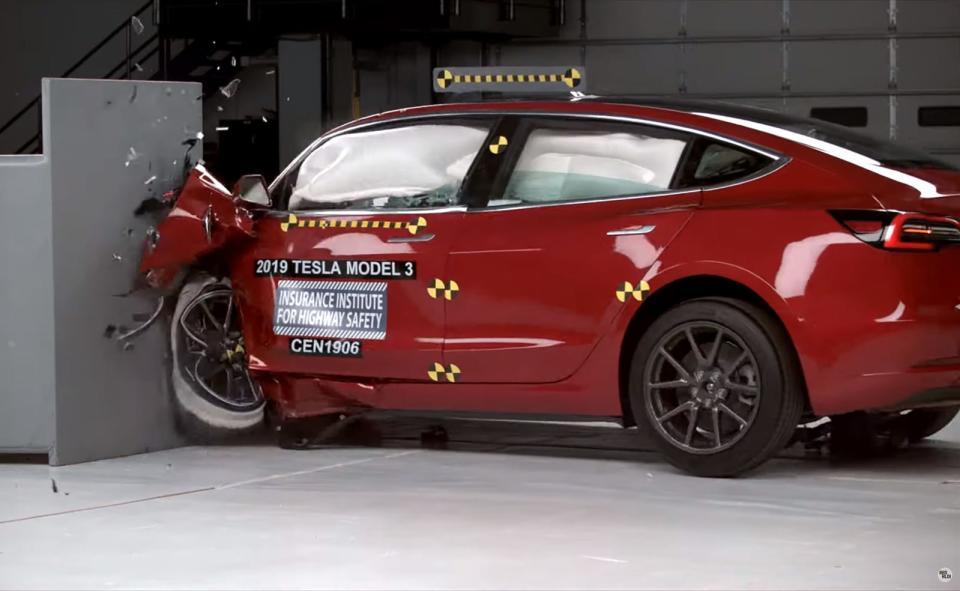Tesla's Model 3 joins Audi's E-Tron in claiming top safety award
Two EVs are the safest vehicles on the road, according to the IIHS.
The Tesla Model 3 has joined the Audi E-Tron as one of the safest cars on the road, earning a Top Safety Pick+ award from the Insurance Institute for Highway Safety (IIHS). The organization said that the Model 3 earned "good" ratings across the board for tricky accidents like driver- and passenger-side "small overlap front" crashes (below). It also did well to avoid collisions in the first place during 12 mph and 25 mph track tests.
Last month, Audi's flagship E-Tron also garnered a 2019 Top Safety Pick+ award, becoming the first EV to do so, according to the organization. That vehicle also impressed the IIHC with its crash ratings, collision avoidance systems and headlights that automatically dim thanks to a high-beam assist feature.
Along with the two EVs, another alternative fuel vehicle, the hydrogen fuel cell powered Hyundai Nexo, also qualified for a Top Safety Pick+. Chevy's Bolt, meanwhile, earned "good" ratings in most crash tests, but failed to receive a Top Safety Pick award because its headlights gave off too much glare to oncoming drivers.
Tesla's Model 3 has previously received a five-star safety rating from the NHTSA. However, it got into trouble with the organization for making certain safety claims about the Model 3 in its marketing materials. The NHTSA issued a cease and desist letter and referred the matter to the FTC.
The IIHS awards buttress the argument that EVs are safer than internal combustion engine (ICE) vehicles in a crash. Without a large, heavy gasoline engine in the front, the theory goes, manufacturers are better able to design the structure to absorb impacts and protect the occupants. "The fact that the battery can be placed in in a variety of places, maybe with more flexibility than a gas tank, [also] provides the potential to make electric vehicles safer," chief IIHS research officer David Zuby told CNBC.
The IIHS hedged that a bit, though, saying that EVs aren't "inherently" safer than ICE cars. However, Zuby noted that the vehicles seem to be at least on an equal footing. "There's no need to trade away safety for a lower carbon footprint when choosing a vehicle," he said.


